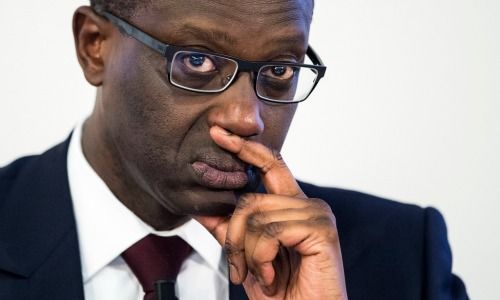It is obviously early days still – whether the new strategy presented yesterday by Credit Suisse will be successful only time can tell. Tidjane Thiam however seems to have moved with care. Seven examples to proof this point.
1. Focus on Switzerland
Credit Suisse' home market will enjoy the highest priority for growth, apart from Asia. Tidjane Thiam aims to unearth the hidden gems by creating a largely independent universal bank. He will spend billions to build private banking by acquiring smaller rivals.
Thiam stuck to his words, he had already said that Switzerland was an important market. And it is highly realistic. Expansion in Asia means spending vast amounts of money to come close to the big players UBS and HSBC.
Spending money in Switzerland is less risky. Market share can be bought relatively easily.
2. Investment Banking Remains Vital
The expert money was on a downsizing of investment banking in favor of a strengthening of private banking and giving Credit Suisse the appearance of an entrepreneurial institute.
Yesterday's presentation showed that investment banking remains important. The splitting in two makes the structure easier. CS will continue to work for big investors and the investment banking arm is part and parcel of the Credit Suisse culture.
Taking investment banking away would have taken away a speciality of the bank, a core competence. It would have made CS more comparable with UBS, whose size and asset under management are out of reach.
3. Reduction of Risk
Brady Dougan stuck to fixed income and global macro, a bet on a capital intensive business that never really paid off. His successor is more pragmatic: Thiam aims to reduce risk-weighted assets by 72 percent by the end of the year. A clever move, because he preempts regulatory demands with this step.
4. Increase of Capital
Credit Suisse is bolstering its capital by 6 billion francs, which is substantial. The capital ratio rises to 12.2 percent from 10.2 percent. The sale of a part of CS Switzerland will yield a further 2 to 4 billion francs, available for takeovers or simply as cushion.
5. No More Co-Heads
Shared responsibility at the bank's top posts was almost a rule rather than the exception. Oswald Grübel at one point had to share with John Mack, Hans-Ulrich Meister worked with Robert Shafir in charge of private banking, Dougan even had three managers leading the investment bank: Gaël de Boissard, Tim O'Hara and James Amine.
Co-heads don't work in banking. The latest example of failure: Jürgen Fitschen and Anshu Jain at Deutsche. Thiam understood and acted: Iqbal Khan replaced Meister and Shafir, Amine and O'Hara are in charge of two separate investment banking units. That's wise.
6. David Mathers Remains CFO
The Brit was said to be one of the managers, Thiam wanted to get rid of. He seems to have changed his mind. Which makes sense.
The CFO of a bank has the best overview. He knows the weaknesses and skeletons. Reorganizing a bank without that knowledge is risky, too risky.
David Mathers is an experienced cost cutter. Integrating Clariden Leu into CS is said to have been his idea. The bank may have lost assets under management, but also reduced costs in private banking to a substantial degree. This is a performance worth keeping in house.
6. Consultants on the Board May Not Always Be a Bad Thing
Removing bankers and adding consultants isn't universally popular. Khan, the new head of international wealth management, is a former Ernst & Young adviser. Pierre-Olivier Bouée, the new chief operating officer, a former McKinsey-man. As was obviously his boss.
Consultants know how they work, so having Khan and Bouée on the executive board makes a lot of sense.



































